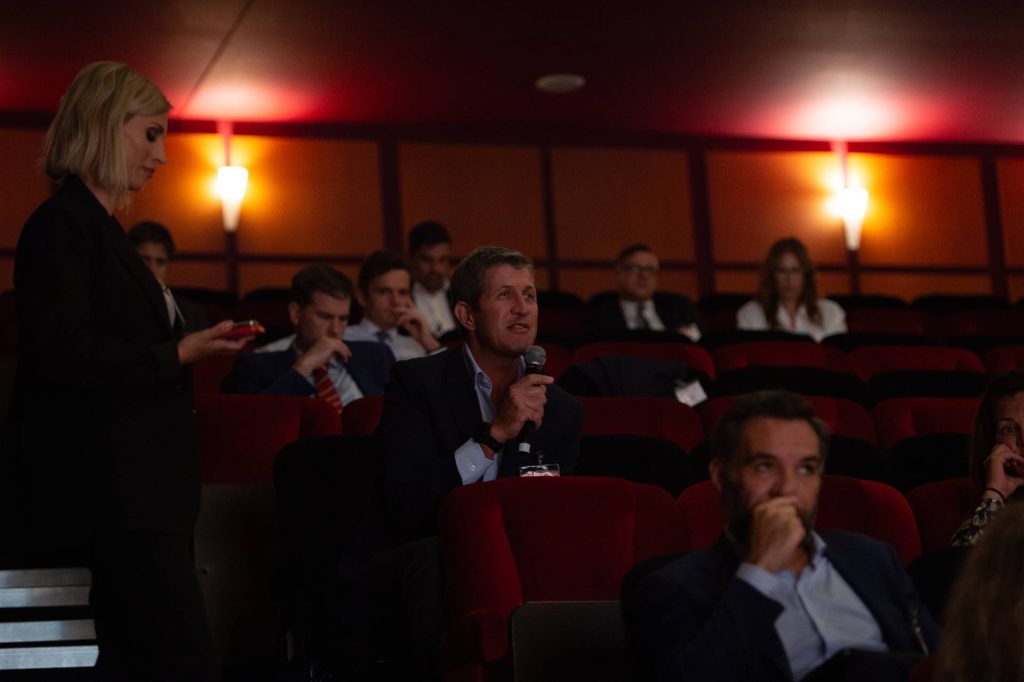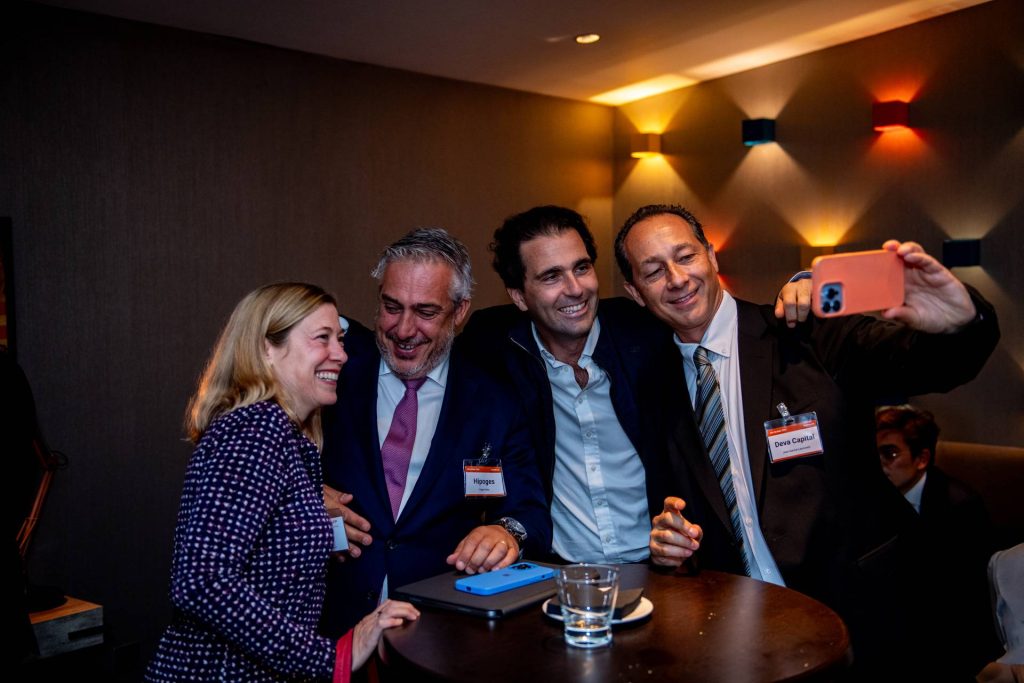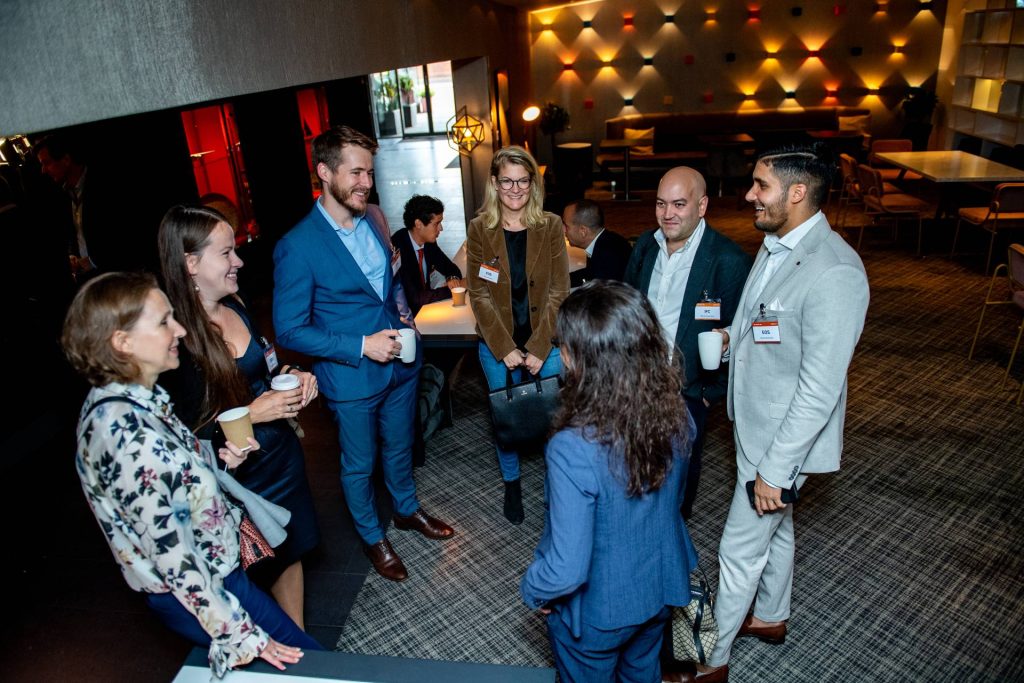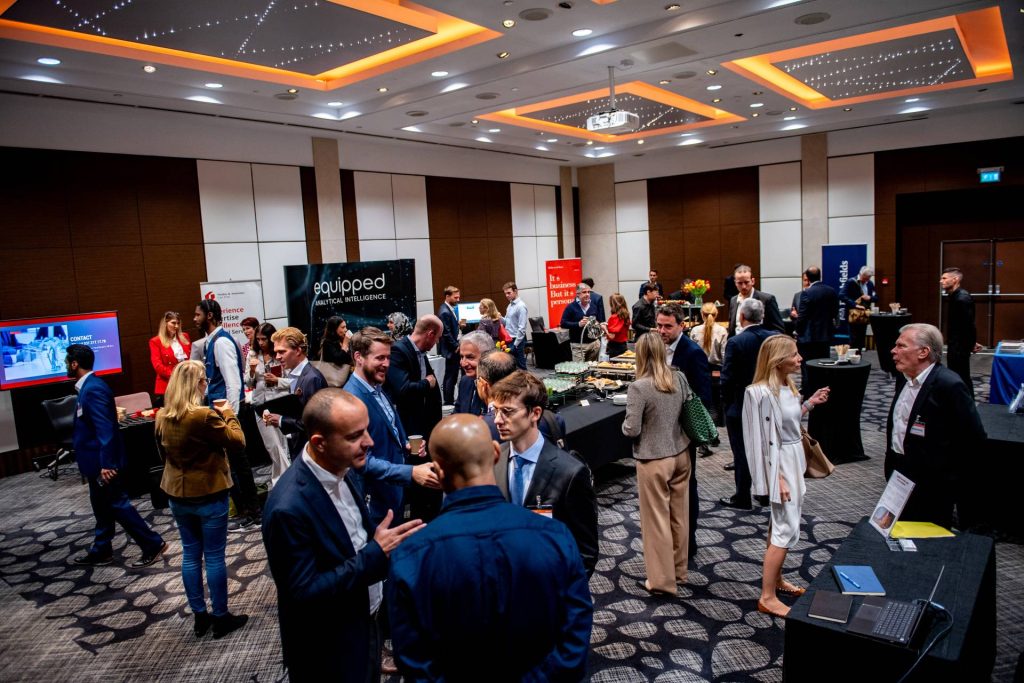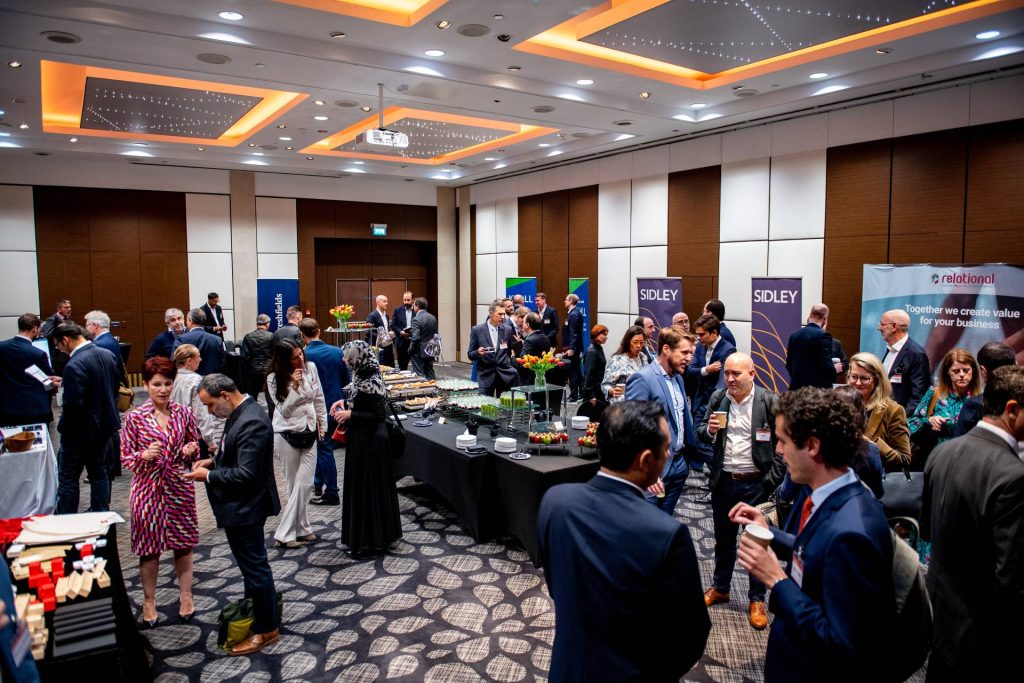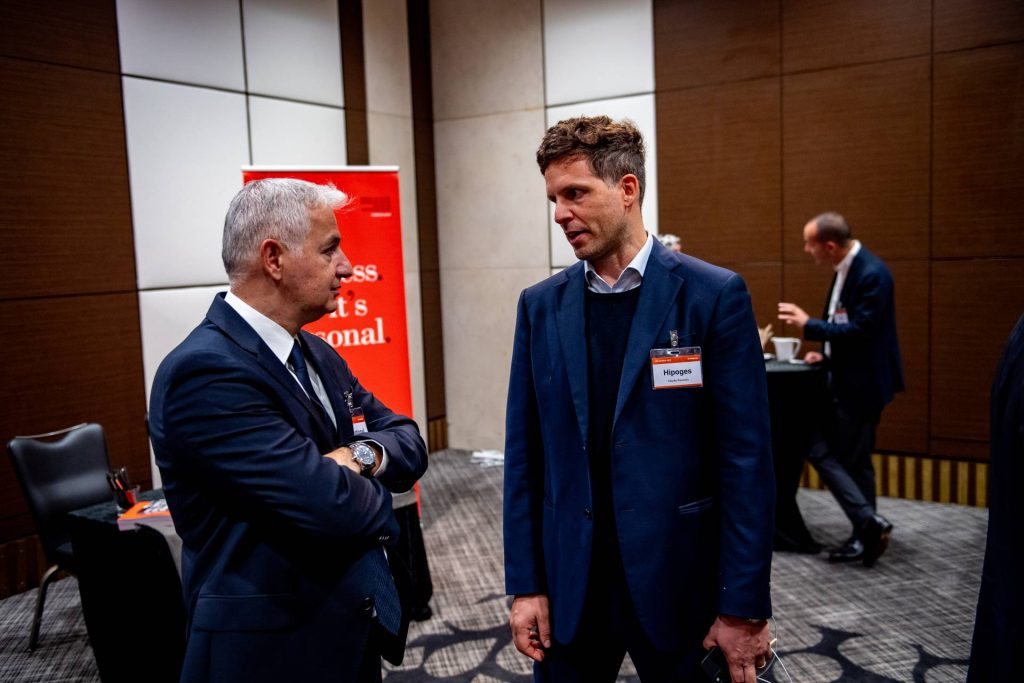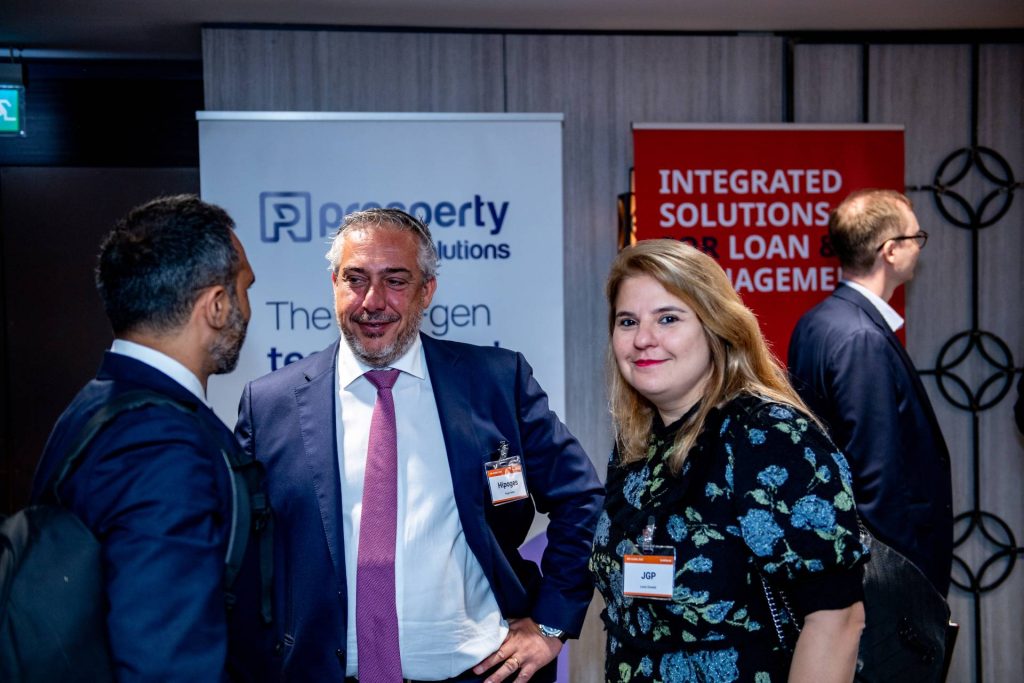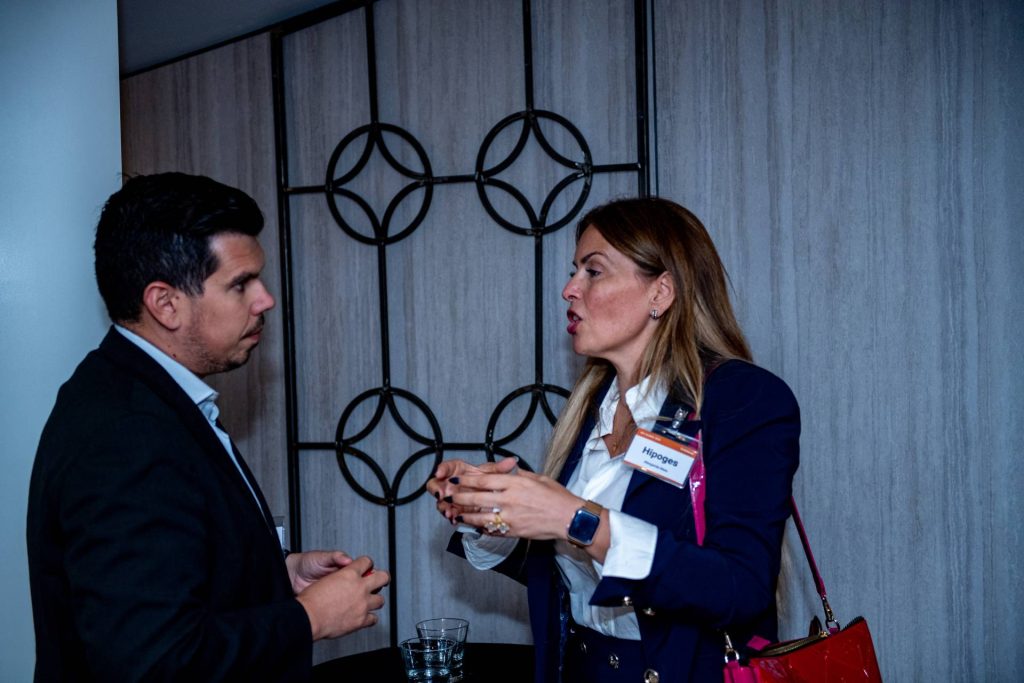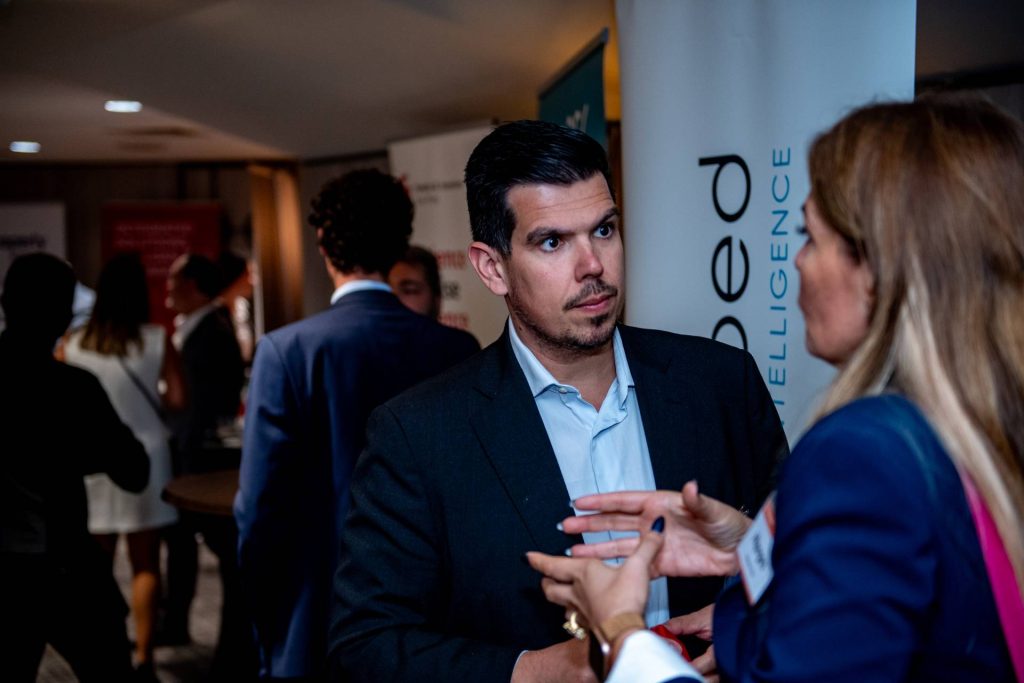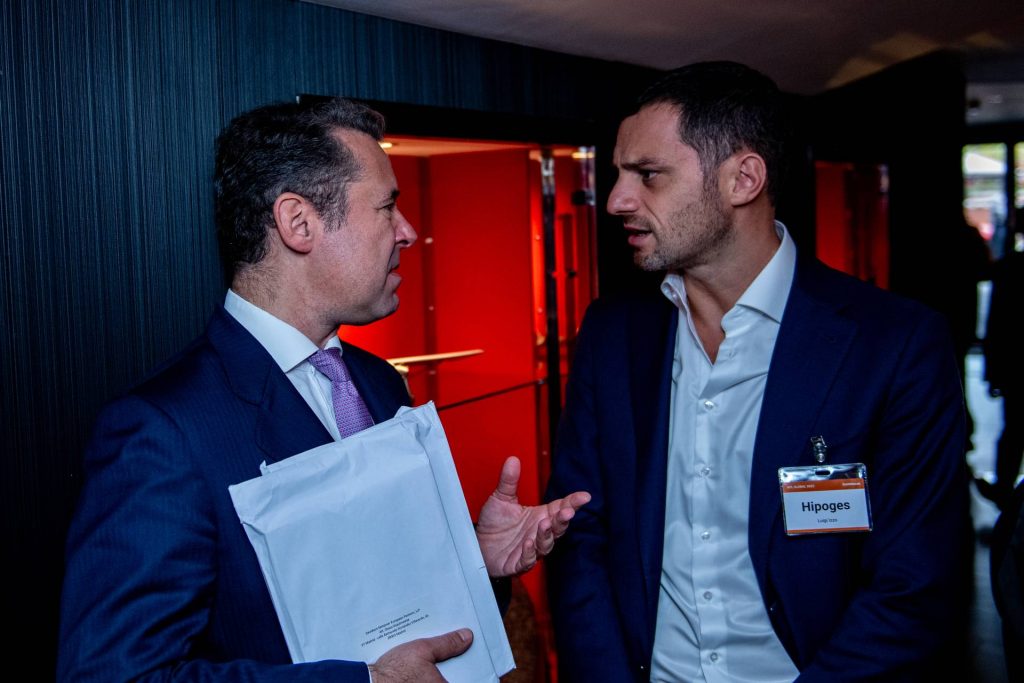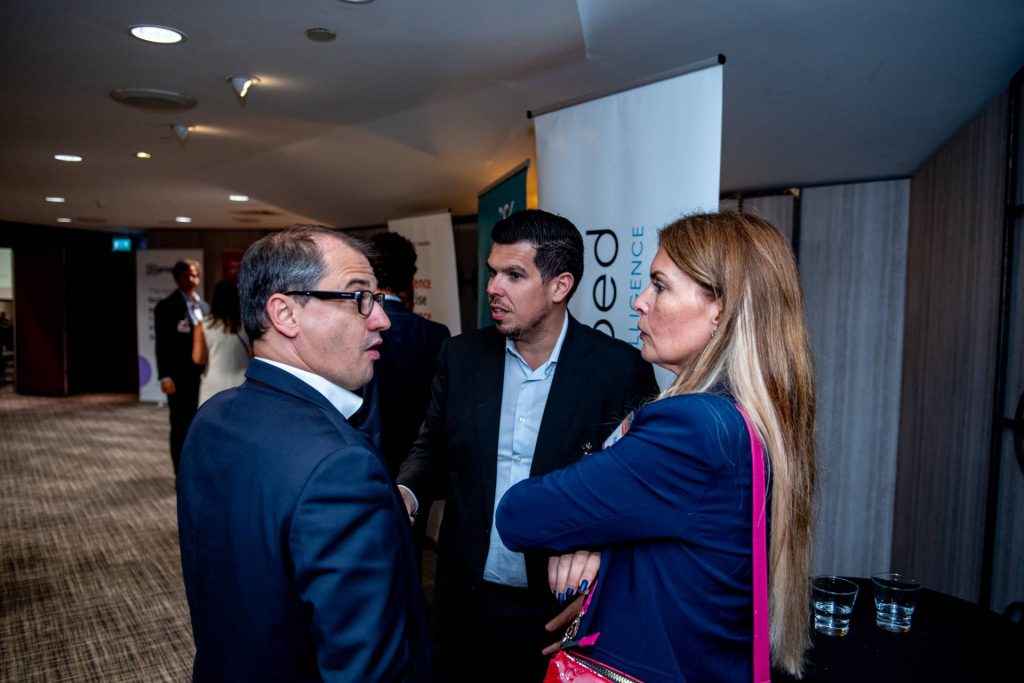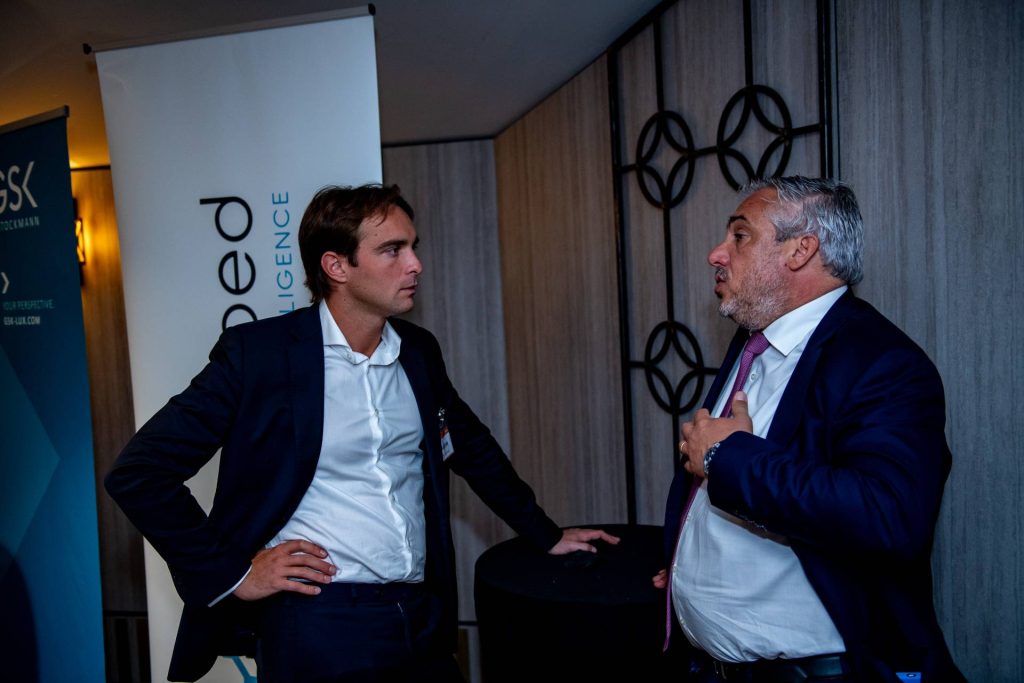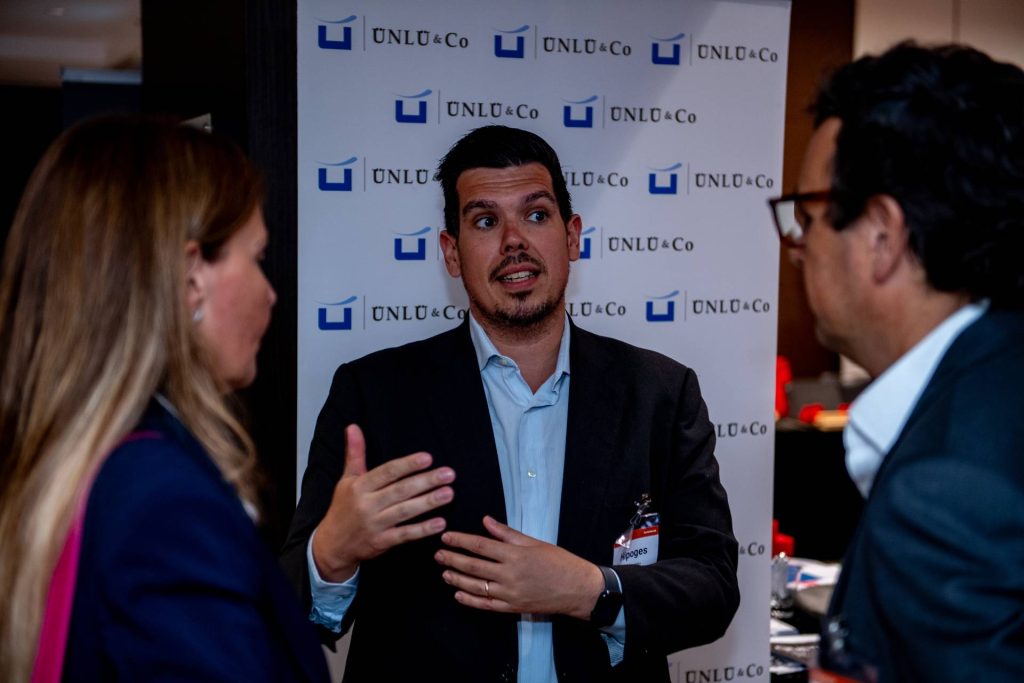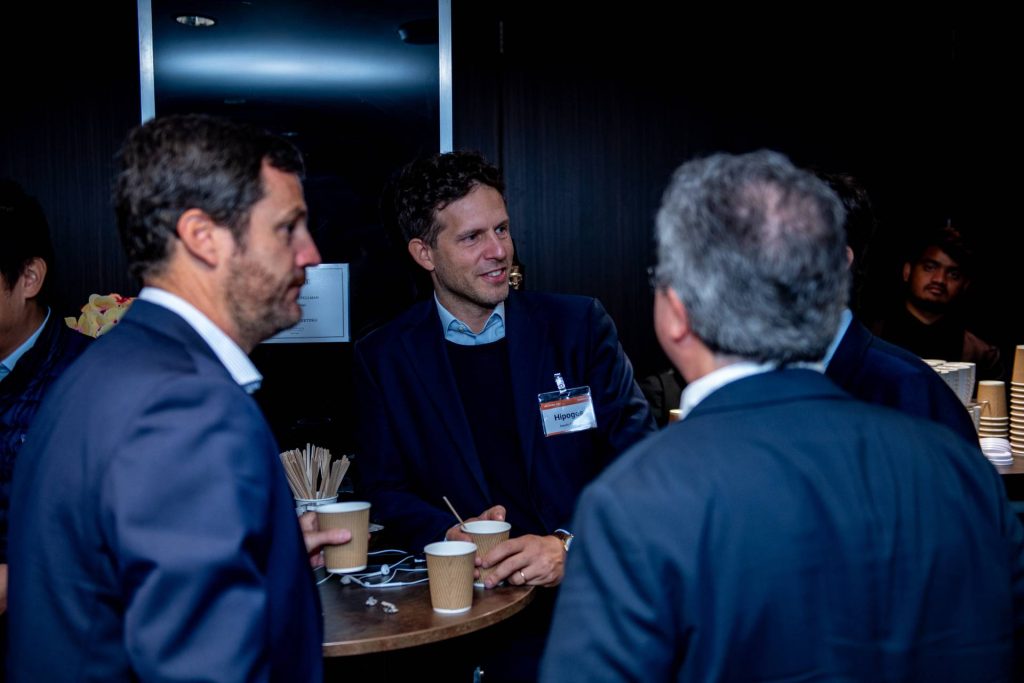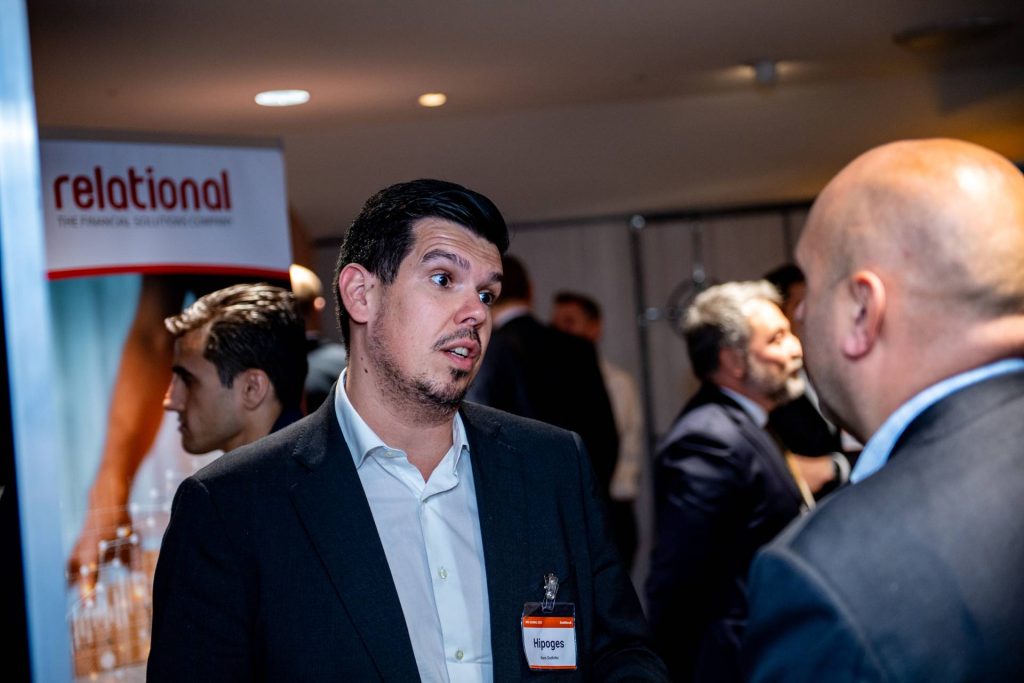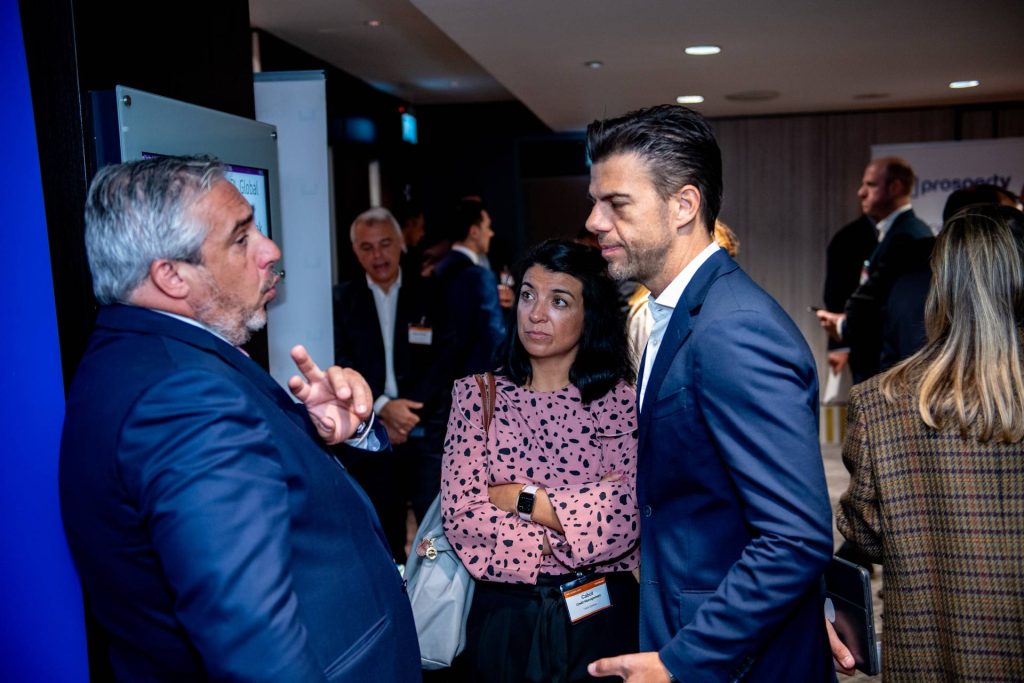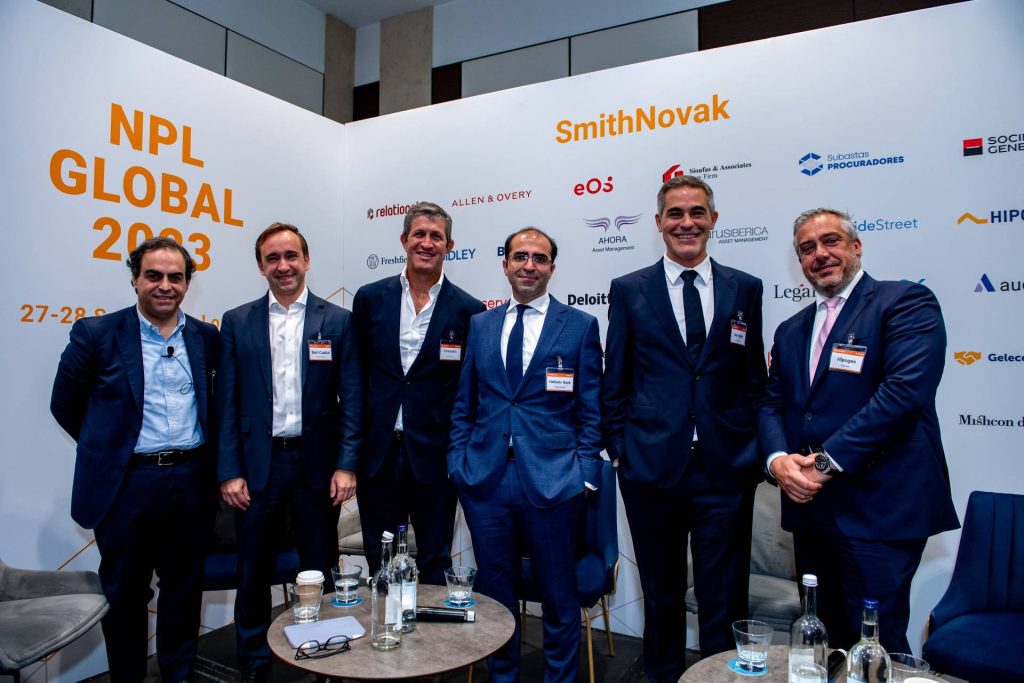On the 27th and 28th of September, Hipoges attended the fifth international edition of NPL Global organized by SmithNovak as a proud sponsor, held at the Pullman Hotel St. Pancras in central London.
More than 400 delegations, 200 companies, 100 speakers and 30 countries reflected in more than 18 sessions from different markets. Among the main ones, the markets of Greece, Spain, India, the United States, Italy, Turkey and northern European countries in general were discussed.
Among hundred attendees at the event, we had the participation of Hugo Velez, Managing Partner and Co-CEO of Hipoges. In addition, Claudio Panunzio Managing Partner and Co-CEO, Margarida Maia Chief Services Offices, Nuno Godinho Chief Corporate Services, Juan Ramón Prieto Chief Operation Officer, and Luigi Izzo Executive Director Advisory, all key people of the company, were also present.
First day of the 5th Edition NPL Global
1. Global Market
The first day of the event began with a talk about the market in general. How the current macroeconomic environment is affecting asset quality and what factors are driving investor’s appetite.
There was a debate about which market was actively selling the most, portfolios with different assets with NPLs, RPLs, UTPs and REOs or single tickets, and where the key opportunities for investors and price evolution are.
Is it fair to say that investors have now adopted a more selective and specialized approach to their investments? At the end of July, the president of Blackstone stated that inflation had peaked and that “markets will normalize, and transaction activity will recover.”
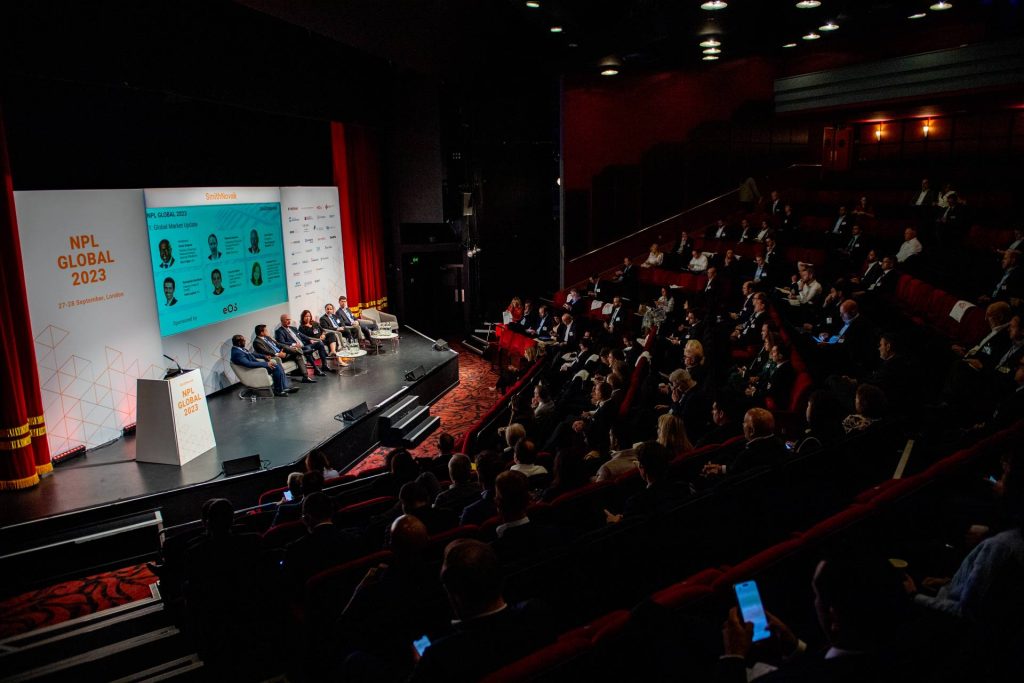
2. Inversor: Secured & Single Tickets; and Greece
In this second block, the impact that commercial real estate prices may have falling drastically around the world was discussed. In relation to specialization, you might wonder about the possible new opportunities in RESI and REO properties, a possible interesting niche. The single tickets also caught the attention of investors, analysing the most interesting types of assets. Finally, they put on the table the new innovative NPL transaction structures that investors are adopting to minimize risk.
On the other hand, Greece was the second part of this block of talks. Its evolution and greater consolidation are creating new trends in this market. Likewise, the evolution of prices in all types of real estate assets affects market transactions. Looking ahead to 2024, they were assessing the volume and types of assets that could be most appealing, as well as new trends and the role that core Servicers will continue to play. To conclude this section, the speakers ask whether UTPs will become a dominant asset class in Greece as has happened in Italy.
3. Technology: data and analysis; Brazil and Latin America; and Execution of sales and portfolio valuations
This 3rd block began with the importance of technology, more specifically regarding data quality, a topic of conversation not only in this sector. They focused on revealing the best technological solutions and their benefits. Not surprisingly, they also talked about AI and what would be the best way to use it for NPL management, as well as using technology in general to improve the process of incorporating a new portfolio.
The intermediate block dealt with the economic situation in Brazil and Latin American countries and the tensions they are exerting on banks to resolve the NPE stock. Reports suggest that the Brazilian handbag sales market is set to boom. However, it is being studied what types of assets will reach the market, who the main local sellers and buyers are, and what business support infrastructure is already in place. For investors it was very interesting to hear what the main opportunities are, as well as the possible help that local partners can offer in challenging processes.
The last part began by underlining again how data quality has always been an impediment to correct pricing. Among different theories, they discussed the best practices that could really be carried out in a sales execution process and what could be the best technology to help in the valuation process or even other external resources that would serve both buyers and sellers. In addition, investors spend a considerable amount of time and money in the due diligence process, so they considered when it would be worth or not continuing with the process when submitting another offer.
4. Spain; New opportunities in the refinancing area; and India
Spanish banks have begun to increase provisions in the face of a wave of new non-payments. In fact, the Bank of Spain has expressed concern about 87 billion euros of “credits that are kept under special investigation.” The debate was strongly marked by conjectures about the possible evolution according to new levels. At the end of July, the media reported that a “first victim of high interest rates” will be reflected in general lack of payment to banks. However, opportunities exist, and players will surely continue to increase even when facing possible new challenges.
Regarding refinancing opportunities, the ecosystem of managing banks and funds in the European Union may be affected. Speakers included what other value-added solutions managers are currently exploring and what technology they could use to do so.
With respect to the market in India, the default trends with 5% NPAs depending on the asset class sets its own definition. The sale of NPLs decreased in the previous fiscal year, compared to the years before COVID-19. But what would this mean for investors? This block closed with an intense debate where possible opportunities for the future were discussed.
5. Financial structure: Secured offers; Financial litigation and asset recovery; and Alternative financing: non-bank loans
This fifth block, made of three extensive parts, began by presenting the key trends in the global market and how these trends behave in different countries. The new regulatory framework and ESG parameters due to climate change could affect investors. Will this be an impediment to a speed performance? Additionally, there was an interesting discussion that delved into the importance of securing portfolios in the secondary market in the new European regulatory framework.
The NPL debt recovery marked the second part of this block. The key benefits not only for sellers and buyers but also for managers, as well as in which market is NPL execution obtaining great results, these were the two pillars of the discussion. The possible strategies a company could adopt for debt recovery was also a key point of interest.
Despite reports that the global direct lending market is booming, a recent Reuters article claimed that the US market has “run out of steam” and has seen a 34% drop in the last year. Among the speakers, this statement was questioned, and talked that a cautious approach should be adopted, capital structures are evolving, and hybrid formulas are more interesting, and what alternative solutions plant competitive advantages.
6. Servicing and United States
The first part of this session focused interest on the challenges faced by Servicers. They discussed how investors typically structure their portfolio outsourcing arrangements, as well as future trends and developments. It is clear that Servicers must differentiate their offer to investors and banks, but from an operational perspective, what is the key to achieving high recovery rates? Resolving this latent question, the different organizational systems of the servicing markets in different regions were raised, as well as the opportunities for global expansion and consolidation.
The second and final part of this block focused on the United States. Speakers commented about the raised volume of NPLs, RPLs, REOs and PL for this and coming years, and the most attractive types of markets. Reports suggest that the CRE market is under considerable stress, so it remains to be seen whether large portfolios will be created for next year. Media reports recently claimed that regional banks and other lenders are “increasingly selling off their consumer loans as financing them becomes harder and more expensive, flooding private lending firms and hedge funds with requests to buy the stock.” Is this really happening?
This is how the sixth and final debate of the first day of SmithNovak’s 5th Global NPL Edition closed. Saul Soto, Marketing & Account Manager at DWF Law in the United Kingdom shares that “it was a great event and the SmithNovak team provided incredible support throughout the event. Great sessions and panellist throughout the program.”
2nd Day of the 5th Edition of NPL Global by SmithNovak
7. Southern Europe
The trend towards consolidation of the markets of Greece, Italy, Spain and Portugal in 2024 marked the beginning of the first session of the day. Spain and Greece have seen large deals, while Italy is progressively becoming an UTP market, so asset types and deals may change in the future.
Reports show that the secondary market will become increasingly important in 2024. Why could this be and what can it entail? This new trend may change the minds of investors regarding the type of assets in which to invest in.
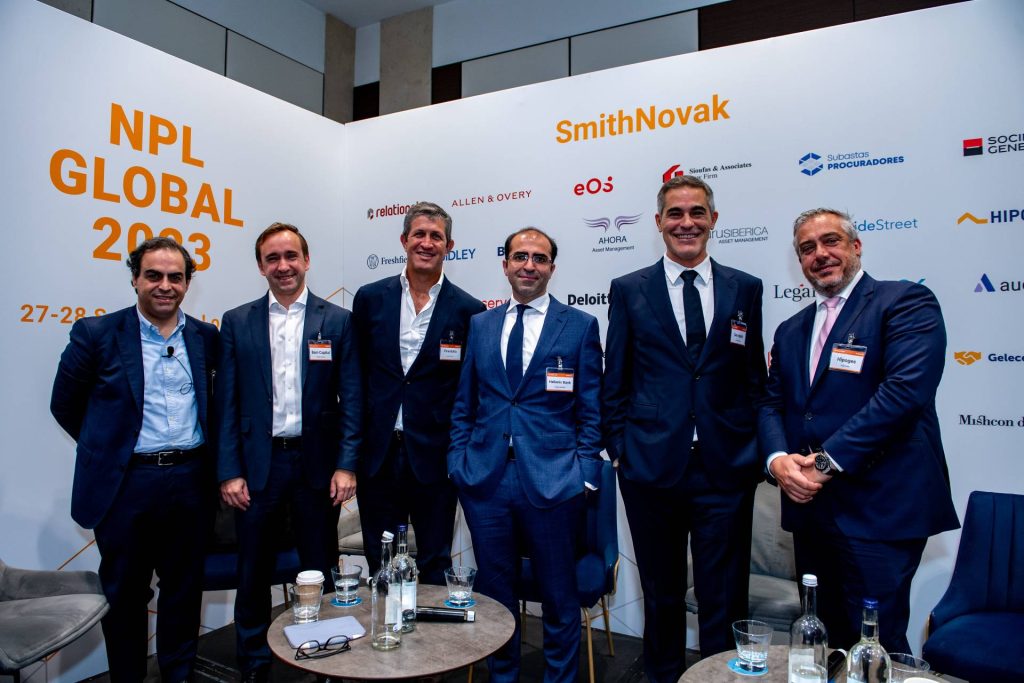
8. Italy and Turkey
There are rumours that a proposed new government reform in Italy will shake up the market. The second block began with this strong statement. It was raised that the potential impact on UTPs are becoming the dominant asset class. In the same way, speakers reacted by proposing different strategies that banks could use. The evolution of prices and the change in investment appetite may be a reality for Italy. Italian banks now have average NPR rates below 3%. They wonder what the ecosystem will be like for NPL buyers. And really why the government has imposed a 40% tax on windfall profits on banks.
On the other hand, the ratio between non-performing loans and total loans in Turkey is around 10.8%. With this information, different strategies are planned towards factors and types of loans that are causing stress to banks and the economy. We have seen a number of portfolio acquisitions, which demonstrates market activity. Furthermore, the Financial Restructuring Plan ended in June leaves a panorama of issues that, together with the re-election of Turkish President Erdoğan and the consecutive devaluation of the Turkish lira, leaves us with the unstable question of how they will adapt the balances of doubtful loans of the banks and the general economy.
9. North of Europe
The last panel explained how Germany, France, the United Kingdom and Ireland, the Nordic countries and Benelux would develop in 2024 as well as the banks’ strategies. Another topic of the discussion was how the German and French markets are organizing their opportunities for investors and Servicers. Finally, in January 2023 the Irish government opened a consultation to discuss an EU directive to promote sales in the secondary market. Will this mean restarting the transactions?
